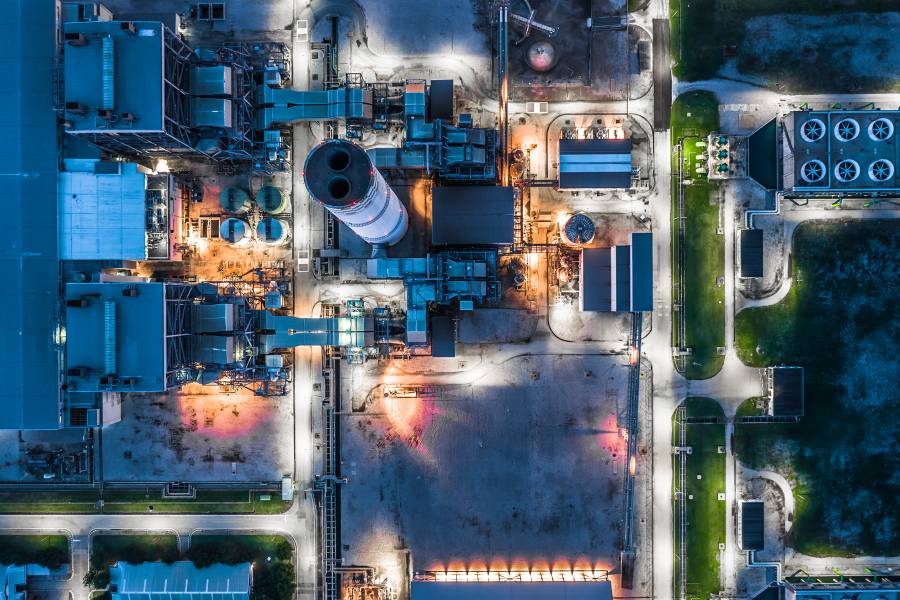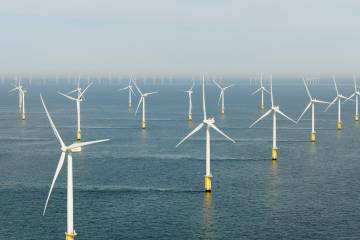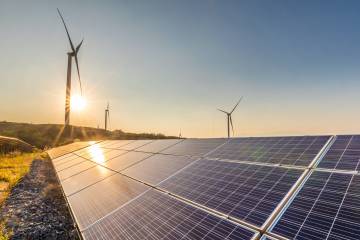Experts agree that the development of clean, renewable, and sustainable energy is key to reducing the greenhouse gas emissions that fuel climate change.
But what do terms like "sustainable energy" and "renewable energy" actually mean, and what do they look like in practice?
For a closer look at energy sources and how Hopkins researchers are working to develop and deploy better energy technologies, the Hub spoke with Benjamin Schafer, founding director of the Ralph S. O'Connor Sustainable Energy Institute, or ROSEI, and the Willard and Lillian J. Hackerman Professor in the Department of Civil and Systems Engineering.
What is "renewable energy" and is it the same as "sustainable energy?"
In an informal setting, those terms are used interchangeably and it's not a problem. More technically, renewable energy comes from a source that itself can be renewed, and sustainable energy is a goal in your use of energy: its source is one that satisfies current energy needs without compromising those needs for future generations.
When people refer to renewable energy, they tend to be talking about wind energy or solar energy, because we think of those as being renewable, though sometimes, people are referring to geothermal, or hydro-power—other sources of energy that, given the normal cycles of the planet, can be used over and over again.
Sustainable energy is a higher bar to pass. It's the notion of energy that we can use now, but which will still be there for future generations, like wind energy. We think there's going to be wind now, and there will be wind in the future. But if, in order to create and harvest that wind energy, we have to use certain resources, the question becomes is the resource that you use to harvest the wind energy sustainable? Will it be there for the next generation?
Every sort of energy has some version of sustainability. Even fuels that we know are not a renewable source could be made to sustain much longer for many more generations, as long as we are very careful with how we use them and are willing to take measures to mitigate or prevent any of those fuel sources' negative effects.
How is the development of sustainable or renewable infrastructures affected by increased energy consumption?
That's difficult to answer. In most cases, humanity will use the least-cost solution and oftentimes, those solutions are the most polluting ones. If everything stays as it is now, energy consumption and more pollution go hand in hand, and that's problematic.
Researchers here at Hopkins and elsewhere are working on energy technologies that not only will be sustainable but which, when implemented at scale, will also cost less than the fossil fuel technologies we use today.
If we can cross that bar, the transition will happen very quickly. But you need political will to move that needle. It would mean disinvesting in certain technologies that we've been using for a century and investing in new technologies, new people, and new companies. That's complicated, because getting the political will to do this is very difficult.
Do you foresee a time when sustainable and renewable energy production will be sufficient to fulfill most energy needs?
This, again, is 100% a question about political will, rather than about technology. I don't think there's any objective around our energy profile that we couldn't achieve if we set those goals. But the reality is that we talk a good game about bringing in sustainable energy technologies, but have a very complicated political and economic system dedicated to the energy consumption methods we use today, from our workforce to the way our planes fly.
I am not so pessimistic as to think we can't adapt to a totally different energy profile in the future, and that people would look back and say, "Wow, it was crazy that they polluted and used things that way back then."
What are Hopkins researchers doing to make a sustainable/renewable energy future a reality?
At ROSEI, we'll soon announce major initiatives toward our mission, which is enabling technologies and equitable implementation of sustainable energy. We'll have groups working on solar cells, batteries, carbon transformation, and something related to wind farms. We will be working on policy and markets. We'll include researchers from the Whiting School of Engineering, as well as from the Krieger School of Arts and Sciences, the School for Advanced International Studies, APL, and others, because ROSEI is a university-wide effort. We'll have outreach programs for undergraduates, graduates, faculty, and we are working on a high school program. It is a situation where everybody can grab an oar and row with us.
What does a sustainable energy future look like to you and your colleagues?
We span a broad area of energy, from chemists and material scientists that are thinking about fundamental changes to transform what we're doing now in fossil fuels and solar cells, to systems-level people thinking about how the power grid works and the policies around them. Everybody peers through the lens of, "How can I make my piece of the puzzle sustainable? Can I change this chemistry so that this process becomes sustainable and doesn't damage the environment? Could I change the market forces so that the right people are incentivized to build with the right technologies right now?"
For example, I'm a structural engineer and work on making wind turbine towers more efficient. I ask, "How can I change the technology so wind turbine towers will be able to go higher and get better winds, so they'll last in hurricanes, while using a minimum amount of construction materials like steel?"
But we all have the same objective: to make an affordable and equitable green energy future possible.










